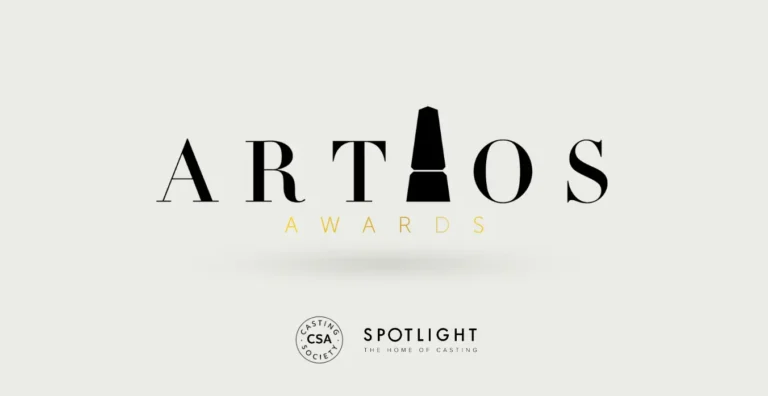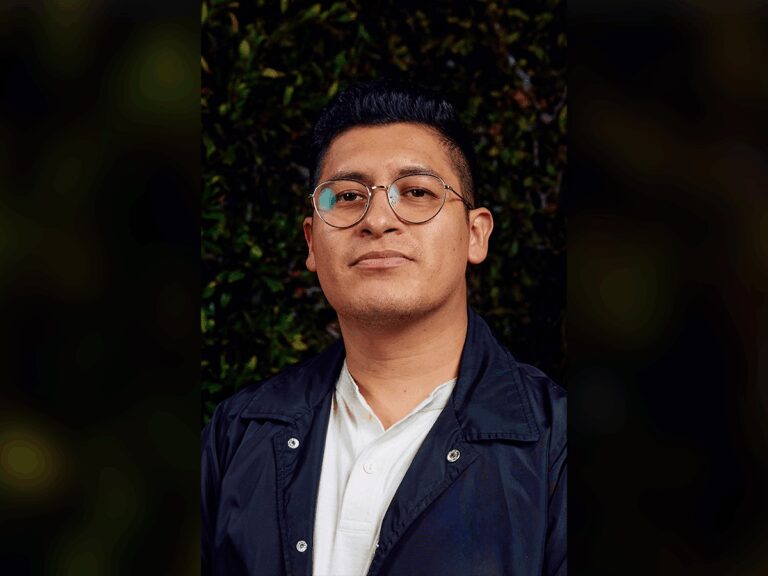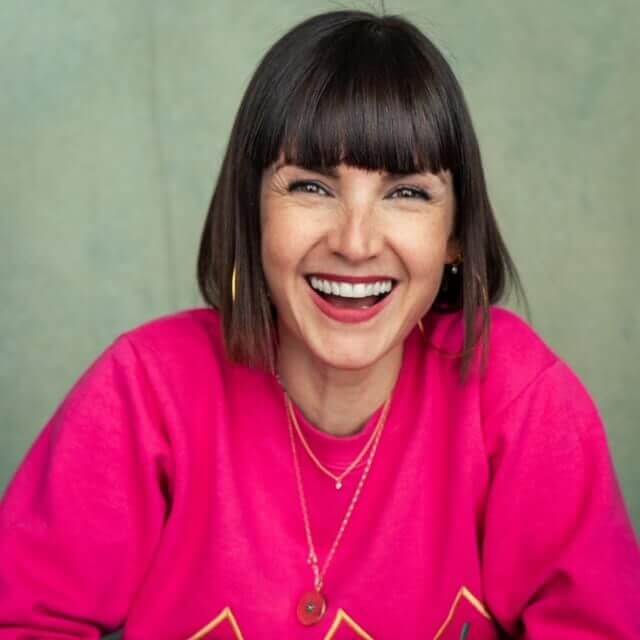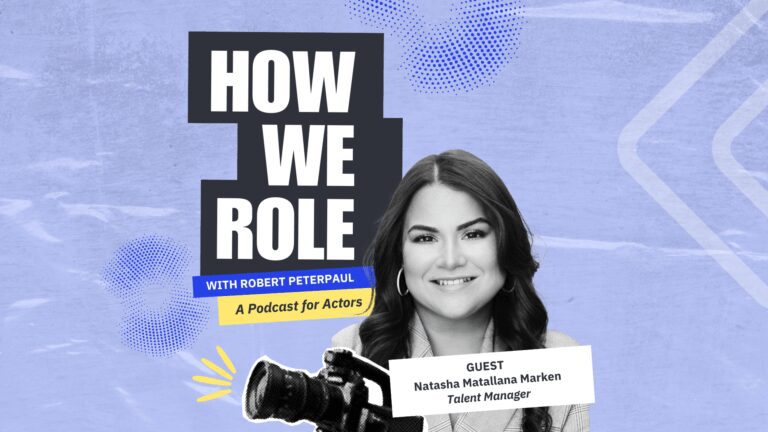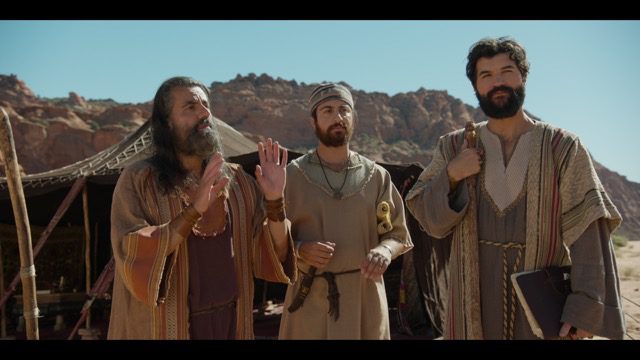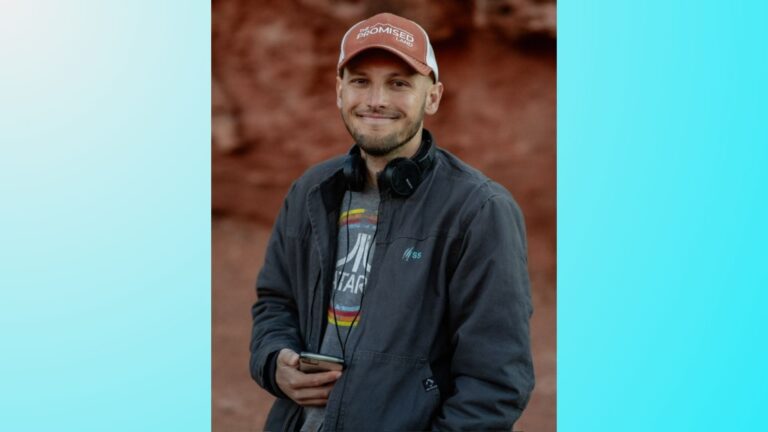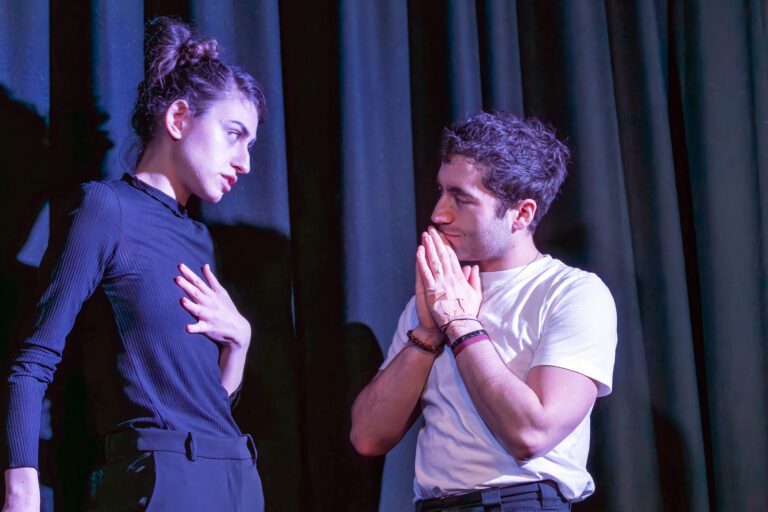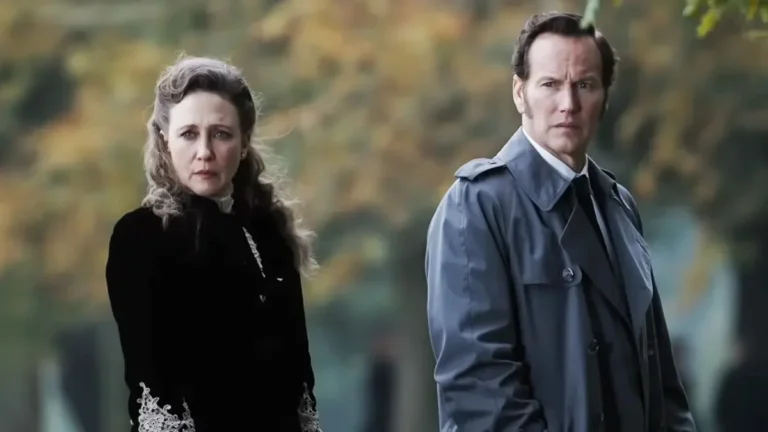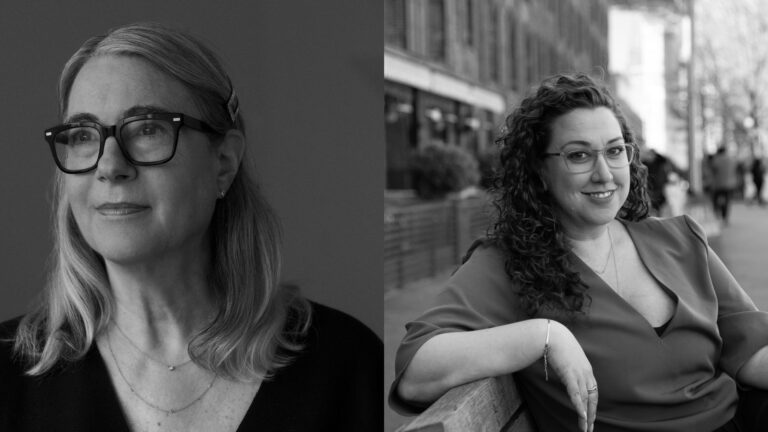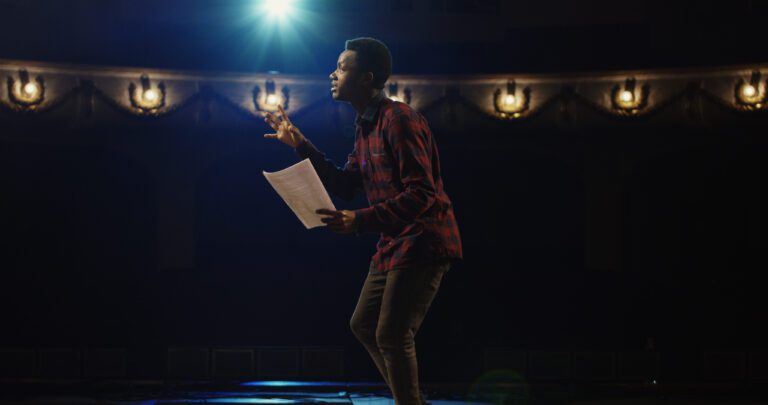Alan Luna has been a casting director for almost 15 years, which is only really impressive when you consider he’s still in his early 30s. The son of Mexican immigrants, he has established himself, somewhat reluctantly, as one of the entertainment industry’s leading Latino voices.
While he develops projects as a producer, his work in casting has included films like The Long Game and TV shows like Send Help. Among his many upcoming projects is 52nd State, which Netflix co-founder Reed Hastings produce.
In recognition of Hispanic Heritage Month, he sat down to talk with us from his home office in LA, joined by his beloved cat, Crusty.
Insights From Alan Luna
- Actors should seek out mentors and build genuine relationships in the industry to gain early opportunities and guidance.
- Actors need to advocate for themselves and their communities by supporting projects that highlight diverse stories and voices.
- Actors should get involved in the casting process when possible, such as attending auditions or workshops, to better understand the industry and build confidence.
How did you get into casting in the first place?
It’s a really long story, but I was born and raised here in Los Angeles, first-generation Chicano, son of immigrants, and I think this industry isn’t really that accessible, especially for that community.
There was a moment when I was a teenager when we experienced being unhoused for a bit, and were taken in by family friends in Santa Monica, right by the beach. Our next-door neighbor was a casting director and producer. I had lived next to the Sony lot, the Fox lot, but it felt like this giant wall that just wasn’t accessible.
Literally and figuratively, giant walls.
One hundred percent. But our neighbor really took a liking to us, and she told me that once I graduated from high school, I could come work for her company. She also developed TV shows and had a first-look deal with a production company.
When I was 17, I graduated a year early and knocked on her door. She honored her promise, and I immediately became an intern for her, helping her develop and cast TV shows. That was my introduction to the industry.
So why focus on casting, rather than producing?
Seeing actors’ passion and how much they love to act, for me, it just made me want to be around actors forever. Being around actors and helping them achieve what they want to achieve just spoke to me.
How did this then turn into a career? What was the process of going out on your own?
The woman I worked for, who is no longer in the industry, so I don’t want to name her, had a really vertically integrated business, and it was acquired by a Canadian company called Tricon Films & Television.
They were later acquired by a large distributor in LA called Sonar Entertainment, but before that, they were based out of Toronto and opened an LA office. I became the LA casting coordinator after a couple of months, when my mentor left the company. They were selling something like a show a month. One of our execs had been an exec at Viacom, and that dude just knew how to sell.
Sounds like it was a great place to learn.
It was great, and then Sonar bought them out because they wanted Tricon’s distribution catalog in Canada. I got laid off and found an online job posting for Univision. That’s where I met one of my dear friends, Natalie Ballesteros, a first-generation Cuban American from Florida, who was spearheading this giant casting search for a Spanish-speaking competition show.
There aren’t really any Spanish speakers in casting, and she really tested me during our interview. We became good friends. I’m grateful to her for introducing me to Latino Hollywood.
So you started working with her?
She had started working on season 1 of Narcos: Mexico, and she needed help. So I helped her, then went back to freelancing. I worked on a small indie for a buddy, then Natalie called me again about a year or so later to help her with the new Selena show for Netflix. I worked with her for a while, then she got a wonderful opportunity when she became the Director of Talent and Casting at CBS.
Around then, I met another casting director named Michelle Adams. She’s worked with Spike Lee, Tyler Perry and John Singleton, and she asked me to partner up with her. We’ve been together ever since, and a few years ago, Natalie wanted to leave the corporate side and go back to independent casting, so she joined our team.
Let’s circle back to the lack of Spanish speakers in casting. Why do you think that is?
It’s really difficult to break into this industry, especially when getting into casting often involves unpaid internships. All the interns that I came up with are not in the industry anymore.
There’s so much implicit bias in our industry that has caused the casting community to not necessarily see who’s missing in the room. I think that’s also part of the reason why there’s been such an explicit cry for better representation, both in front of the camera and behind it. Honestly, I think we tend to surround ourselves with people who look like us, so it’s difficult to bring members of a marginalized community into the industry.
Okay, so how do you change that? How do you expand representation?
LA is over 50% Latino, so it feels intentional, but there’s no lack of outreach to really talented filmmakers and artists who want to be in casting.
I have a couple of interns myself who work a couple of hours a week so that I can train them to be really good casting assistants. I’m CC’ing them on all the emails, letting them watch auditions and select actors to audition, letting them do the work with me, so that they can build the confidence to be casting directors themselves.
In talking to you, it’s clear that you have a vision, as well as a desire and discipline to be a leader for your community in this field. Why does it fall to you to do it?
I’m not the right person for this, but I don’t have a choice. I didn’t sign up for this. I signed up to get into an industry I loved, to try to shape a story, and hopefully help me get out of poverty. It’s pretty intense, and there’s passion, but there’s also practicality.
When I went to work for that show on Univision, there was an abundance of talent that needed advocacy and access. I’m talking about some of the smartest, most talented people in front of the camera and behind the scenes.
My partner Michelle is a black woman who’s been in casting for over 30 years, and she’s been a really great source of inspiration. When she tells stories about John Singleton and Spike Lee, I want to do that for my community.
I think about some great films in our history, like Stand and Deliver and Selena, and how there must have been a lot of advocacy for those filmmakers and for those stories and for those actors, and I believe we are making our version of those films in this contemporary time. It is a duty to make sure that we do it right, that we work with respect, and that we advocate for our communities.
Where do you see your work leading, and what are you hoping you will see five or 10 years from now?
I want to see more art being shaped by members of my community. The Latino community. The Queer community. I want to see more art getting the respect and the love we really deserve. I think that there are so many [stories like] Stand and Deliver right now that haven’t been told that need to be told, and I want to support those filmmakers and those artists and the actors, and advocate for the actors and make a large impact like that.
You know, it’s true that film and art help influence public policy, and when people say representation matters, it isn’t just a bland statement. Representation informs communities, it teaches people not only about our community who and what we are. That kid that we’re influencing right now, through this art, can go on to become a politician and make a difference that way. So if we’re seen in a positive way, we can make an impact, and I want to continue doing that. I want to see more of us.
Final Takeaways
Breaking into the industry isn’t easy, especially for actors from underrepresented communities. Alan Luna’s journey shows that persistence, connection, and advocacy are key to making a mark. Here are some practical steps new actors can take to navigate this challenging path.
- Find mentors who believe in you and be ready to learn directly from their experience.
- Build authentic relationships with casting directors and industry professionals by showing your passion and professionalism.
- Support projects that tell diverse stories and use your voice to uplift your community.
- Stay involved in the process by attending auditions, workshops, and observing how casting decisions are made.
- Be patient and persistent. Success often comes from consistent effort and seizing small opportunities.
You may also like:

